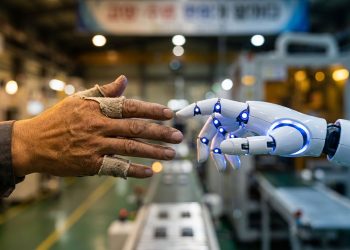Samsung Electronics and LG Electronics are considering relocating some of their appliance manufacturing operations from Mexico to the United States. This potential shift comes as both companies aim to adapt to the protectionist trade policies under U.S. President Donald Trump’s administration.
Trump, who took office for his second term, recently announced plans to impose a 25% tariff on products imported from Mexico and Canada, raising concerns among major global manufacturers with factories in these countries.
The decision to review the move directly responds to these tariffs, which could significantly impact the profitability of companies like Samsung and LG. Both South Korean tech giants are weighing the costs and benefits of shifting production to their U.S. plants, a strategy that may help mitigate the financial impact of the new trade restrictions.
Samsung Electronics is contemplating relocating part of its dryer production from its plant in Querétaro, Mexico, to its U.S. facility in Newberry, South Carolina. The company currently produces refrigerators, washing machines, and dryers in Querétaro, which are sold primarily in Latin America and the U.S., while televisions are manufactured in Tijuana, Mexico.
The decision to shift production is largely driven by the potential cost increases resulting from the tariffs. As dryers and washing machines share similar production processes, Samsung is already preparing its South Carolina plant, established in 2018, to meet U.S. safeguard measures on washing machines.
Samsung’s Newberry facility is equipped to produce washing machines, and relocating dryer production to the U.S. would align with the company’s broader strategy of responding flexibly to shifting trade policies. To preemptively address the impending tariffs, Samsung had already moved part of its refrigerator production from Mexico to its Gwangju plant in Korea in late 2023.
LG Electronics is also contemplating a similar shift, with plans to move the production of refrigerators and possibly televisions from Mexico to its U.S. facility in Clarksville, Tennessee. The Clarksville plant, which currently manufactures washing machines and dryers, has ample space available, with land secured for expansion to accommodate additional factories. This move would help mitigate tariff costs and enhance LG’s ability to respond more quickly to changing market demands in the U.S.
Both companies closely monitor the evolving trade landscape and have indicated a willingness to adapt their production strategies as necessary. Given its extensive global production network, Samsung has stated that it will continue to monitor the situation and adjust its operations as needed. Similarly, LG has adjusted its production system to respond to market shifts and regulatory changes.
In addition to the impact on appliance manufacturing, South Korea’s semiconductor industry is also facing challenges due to potential changes in U.S. policy. Under the U.S. CHIPS Act, which was designed to incentivize domestic semiconductor production, the Biden administration pledged substantial subsidies to major Korean chipmakers. Samsung Electronics and SK Hynix, the world’s two largest memory chip producers, were promised subsidies of $4.7 billion and $460 million, respectively.
However, analysts have raised concerns that these promised amounts could be reduced during disbursement. The uncertainty surrounding these subsidies adds to the broader apprehension among Korean companies, who are already grappling with the potential consequences of rising tariffs and shifting trade policies. As the U.S. government moves forward with its subsidy plans, it remains to be seen how these adjustments will affect the operations of key players in the semiconductor industry.







